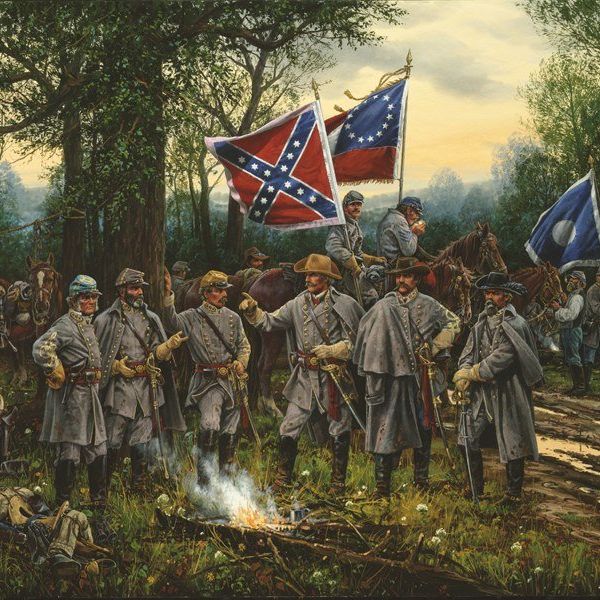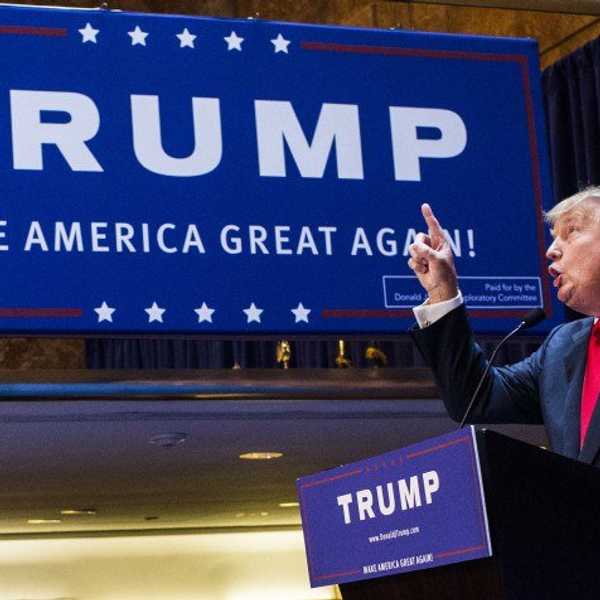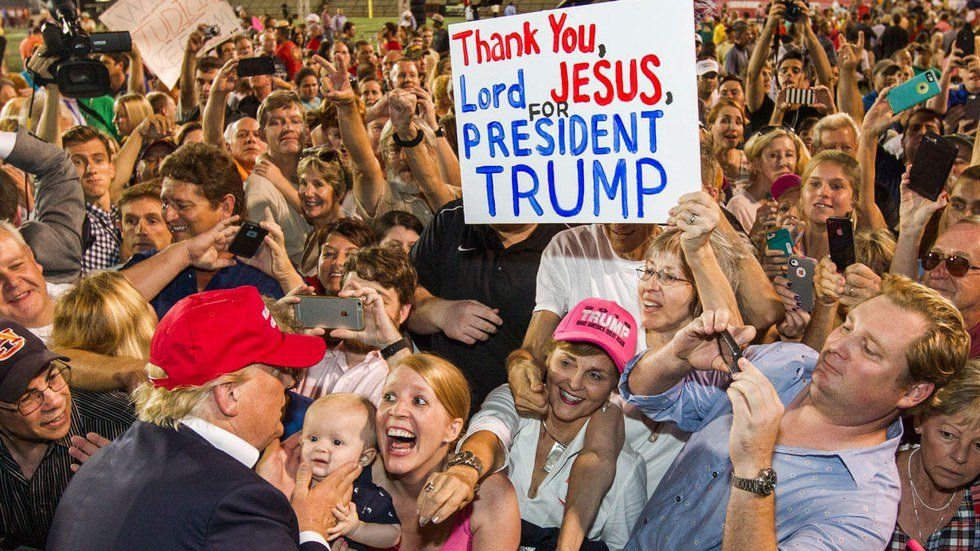At one point or another in most American middle or high school educations, we were taught some basic version of Sigmund Freud’s psychoanalytic theory of personality. The idea is straightforward enough, the human mind is supposed to consist of three components, the id, ego, and the superego. The id represents our most instinctual, animalistic primal urges and needs. E.g. eat, sleep, fight, fuck. The superego which holds an equal one-third stake in our mind’s functioning could not serve a more different purpose. It represents just about everything our society has taught us from the day we were born, from how we should walk, talk, dress, etc. to what laws we should follow and goals we should aspire to. The ego rests somewhere in between, trying to forge an effective middle path between the two diametrically opposing forces. The ultimate result is the miracle of human cognition, our ability to function in the modern world and balance our primal urges with what we know to be true about the way institutions and social norms work.
Upon comparison, some strong parallels emerge between Freud’s theory of personality and the pre-Trump Republican party. First one must draw a line in the sand at Barry Goldwater’s controversial and ultimately ill-fated run in 1964 as the seedling of the unique alliance of demographics which would carry the modern Republican party up until now. Goldwater painted the deep south dark red when running against Lyndon Johnson as his vote against the 1964 Civil Rights Act made the Republican a perfect conduit for segregationists who now found themselves disillusioned with the Democratic Party and searching for a political outlet to house their race-based anger. In fact, Barry Goldwater gave what proved to be by far the best showing of any Republican in the south since the reconstruction-era. In Mississippi, where F.D.R. had once won 98% of the vote, Goldwater took home 87%. Likely without even realizing it, he had become the first to effectively channel the id of the modern Republican party.
Unfortunately, for Goldwater’s aspirations in particular, likely thanks to his endorsement from the K.K.K. and affinity for making brash statements about doing things like using tactical nukes in Vietnam, he didn’t really win anywhere other than the south. A schism emerged within the party between Goldwater who didn’t mind openly dismissing his predecessor, President Eisenhower, and the more establishment, pro civil-rights corporate wing of the party led by his primary opponent New York Governor Nelson Rockefeller. Thus the terms “Goldwater-Republican” and “Rockefeller-Republican” were coined.
I like to think that Freud would point to Rockefeller-Republicans as the party’s superego - stuffy New England elites concerned more with maintaining political power and wealth than representing any one constituency or fighting for any particular cause other than economic conservatism. Meanwhile, Goldwater-Republicans felt abandoned by the Democratic party whom they had trusted to maintain segregation and didn’t hesitate to rebel by aligning themselves with the ill-fated, anti civil-rights candidate put forth by the party of Lincoln. Ultimately when all was said and done, the id delivered Goldwater a whopping total of six states and a paltry fifty-two electoral votes, giving incumbent President Lyndon Johnson the Democratic landslide of a generation.
While it might seem hard to interpret Goldwater’s crushing defeat as anything other than a serious blow to the Republican Party’s national standing, his campaign actually laid the necessary framework for Richard Nixon to win thirty-two states in 1968 and forty-nine in 1972. After sticking with Goldwater in 1964 despite many party elites jumping ship but not directly involving himself in the specific controversies that doomed the party’s previous nominee, Nixon tried to carefully position himself so that he could retain the Republican’s newfound race-based stronghold in the south without alienating the rest of the country. As a former Vice President and California Senator, he was the perfect man to take advantage of the once-in-a-Roman-Republic scale opportunity. Chief of Staff H.R. Halderman said his boss, “emphasized that you have to face the fact that the whole problem is really the blacks. The key is to devise a system that recognized this while not appearing to.”
The theory they were attempting was pushed near its limit in the 1968 election, as Nixon did face a challenge in the form of former Alabama Democratic Governor George Wallace’s independent run. Wallace was a hardliner segregationist who stole almost all of Goldwater’s states from Nixon with the exception of South Carolina. Despite the shake-up, Nixon being a favorite son of California combined with a bit of morbid luck in the form of Robert Kennedy’s assassination shortly after winning California’s Democratic Primary allowed the Republican nominee to capture a plurality of the popular vote over Hubert Humphrey and just over three-hundred electoral votes when the dust settled. Four years later Nixon perfected the Southern Strategy when he overwhelmingly swept Goldwater’s stronghold and won every state except for Massachusetts and the District of Columbia, giving him five hundred and twenty electoral votes - a landslide second only to Ronald Reagan’s 1984 win.
This was the crucial political evolution. The marriage of Rockefeller and Goldwater Republicans officiated by Nixon was the first simultaneous utilization of the party’s id and superego by an effective ego. The formula proved foolproof for about the next four decades as any Republican capable of serving the role of the ego and mobilizing the two groups in concert could win the Presidency. The man to most recently pull off the feat, George W. Bush, embodied an impeccable hodge-podge of Republican pedigree which perfectly suited him to serve as the party’s first (and possibly last) ego of the 21st century. Born to old money in Connecticut, the son of a former President, he was an impossibly charismatic Texas Governor who seemed as down to Earth as the neighbor you barbecued and drank beers with on weekends. At his peak hardly anyone would have claimed that the old divisions of “Goldwater” and “Rockefeller” Republicans still persisted, as Bush Jr. gave all conservatives someone to get behind, meanwhile race remained in the peripherals - he even won record margins of Black and Latino voters for a Republican.
Unfortunately, for those who were optimistic at its outset, with the benefit of hindsight we now know that the Bush Administration is generally regarded as having been marred by several controversies, chiefly the war in Iraq. Republicans’ great 21st century ego faltered and stumbled, concluding his term by giving way to a change candidate in the form of the country’s first African-American President. As a result, the party's id bucked its head and their white right-wing base began to foment serious unrest. The two mid-term elections following President Obama’s initial election in 2008 saw Congressional Republicans make major gains, but not in the sort of rank-and-file members their leadership would have preferred.
Instead, to the great chagrin of Speaker John Boehner these new “Tea-Party” (side note: they couldn’t have picked a name which more literally invokes the image of revolt) Republicans did not come to the hill intending to serve as conduits in some larger utilitarian model which advanced the interests of the party as a whole. They came to the hill with a very clear mission, to disrupt by any means possible on behalf an id unable to come to terms with the reality that that a black man now occupied the office they felt their party’s elites had cost them. (It’s also worth noting that every post civil-rights Democratic President before Obama had been a white, southern guy which must have at least marginally eased the sting for Americans still clinging to a self-ascribed white, national identity.) So Boehner drank like a fish and smoked like a chimney until he couldn’t take it anymore as the House fractured beneath him, Obama ran out of ink in his executive order pen when Congress stalled, and both sides tried to carry on as best as possible despite the obvious wrench being thrown into the cogs of the federal government.
Going into the 2016 Republican Primary, party elites made the fatal flaw of choosing an early favorite in Rockefeller-Republican Jeb Bush. The final effort on behalf of a dynasty that by then had greatly overstayed its welcome in the public eye and a former Governor of Florida, Jeb would have perfectly represented party elites who dreamed of pairing economic conservatism with immigration reform as a way to usher in a new era for Republicans. These elites recognized America’s changing demographics (our under-five population is now majority-minority) and sought to capitalize on George W. Bush’s impressive margins with conservative Latino voters. Unfortunately, they failed to recognize the growing rebellion within the party’s disaffected base – the same base of segregationists initially stolen from the Democrats by Barry Goldwater in 1964.
By the end of March last year, seventeen candidates had announced they would run for the nomination of the Republican Party. The Governors, Senators, businesswoman, and brain surgeon who ran all represented different factions of the party, espoused different strains of conservatism and would have attempted to bring together the party’s superego with its id in different ways. Unfortunately for them, the id had other ideas.
Republicans lost their chance at the electoral college to Democrats well over a year ago, long before any primaries or caucuses had taken place. The day that Donald Trump stood in front of a crowd last June at Trump Tower and disparaged Mexican immigrants, promised to build a wall at their expense, and upended U.S. foreign policy norms he drove a lasting wedge between the party’s base and elite. As the primaries played out he waged bitter war with the Republican establishment, saying things that made Goldwater’s gaffes seem like measured statements by comparison, in effect giving the party’s id a candidate unlike any they’d seen since George Wallace. The emphasis on race had never been this stark in modern Republican politics, giving many extremely disillusioned voters the first candidate they identified with.
A few days prior to Super Tuesday earlier this year, white nationalist and former Klu Klux Klan grand wizard David Duke made the following statement, “Voting for these people, voting against Donald Trump at this point, is really treason to your heritage,” adding “And I am telling you that it is your job now to get active. Get off your duff. Get off your rear end that’s getting fatter and fatter for many of you everyday on your chairs. When this show’s over, go out, call the Republican Party, but call Donald Trump’s headquarters, volunteer,” he said. “They’re screaming for volunteers. Go in there, you’re gonna meet people who are going to have the same kind of mind-set that you have.” Duke, a self avowed white nationalist and former Louisiana state legislator, clearly sees something in Trump that he did not in other recent Republican Presidential nominees.
When asked about the endorsement he’d received from David Duke, Trump attempted to punt. He claimed that he had never heard of Duke and had no idea who he was, without speaking to his acceptance or rejection of the endorsement and call for volunteers. This was wholly intentional, as Trump knows exactly who Duke is and that his own political success is principally dependent on his appeal to race. In fact, Donald even wrote the following in a NY Times editorial (back before he was suing them) titled “What I Saw at the Revolution” about his experience with a failed presidential bid for the Reform party in 2000. “Although I am totally comfortable with the people in the New York Independence Party, I leave the Reform Party to David Duke, Pat Buchanan and Lenora Fulani. That is not company I wish to keep.” Trump wrote.
This raises the fascinating question of whether Trump currently comprehends the scope of what he’s done. Despite being so unapologetic whilst capturing the affection of the party’s id and ire of its elite during the primaries, Donald did go through a phase where he seemed to tenuously grasp the underlying reality that his only chance of winning was to act as a unifier, an ego for the party. Perhaps this is why he realized he couldn’t outright accept Duke’s endorsement, yet still felt he would be doing himself a disservice to reject it. The irony of this hopeful perspective is of course that the very means by which Trump created so much momentum are exactly what has made it demographically impossible for him to ever assemble a winning coalition with turnout anywhere over about forty-percent. He seems to have grasped this by now, retreating into his führerbunker with confidants Roger Ailes and Steve Bannon while abandoning any hope of a last minute Kellyanne Conway-inspired pivot.
As the depth of alleged rapist and Republican nominee Donald Trump’s misogyny becomes more evident by the day (undoubtedly more women will have come forward by the time this article is published), he has only upped the degree to which he now channels the party’s increasingly hateful id. Party elites have all but abandoned him in an unprecedented manner, or as the sleep-deprived septuagenarian would say, he is now “unshackled” from the establishment. What exactly those shackles were keeping him from doing or saying thus far remains to be seen; what is clear is that none of this is good for the Rockefeller Republicans who thought they had a functioning coalition a year ago. Running as a down ballot Republican right now is like trying to land a single engine prop plane in the middle of a category-four hurricane. Candidates across the country are finding it impossible to position themselves between a base captivated by the Trump cult-of-personality and other groups they also depend on who are appalled by the very existence of his candidacy.
Trump's already ubiquitous national name recognition prior to running meant that people already knew him and didn't need long to form an opinion. His niche was carved out early with the theme of white backlash quickly emerging. Since then, not unlike Goldwater, Trump has consistently remained behind by varying degrees in almost all opinion polls. Trend lines show one short-lived moment following the Republican Convention during which his margins rose to rival Clinton’s. This of course quickly gave way to the Democratic Convention, Trump’s feud with the Gold Star Khan family, and a drop in the polls from which he has never recovered. Based on the best model and data available (Nate Silver of 538’s polls-plus model), as of October 13th Hillary Clinton has an 82% chance of winning the Presidency, a 12.6% chance of winning in a landslide, and an 87.1% chance of winning the popular vote.
The salient questions looking ahead seem to be those regarding the future of the party itself. What began as a minor Tea-Party revolt has evolved into a reckoning of biblical proportions for Republicans as the coalition they have depended on since Nixon now crumbles beneath their feet. What does their future hold? What does 2020’s Republican nominee for President look like? Will they stand a chance? Could they even be at a tactical advantage, someone currently waiting in the wings and positioning themselves to capitalize on a moment of realignment? Or, is this the end of the modern Republican Party as we’ve come to know it?
Also, what sort of weird narrative loophole is the universe closing by having Hillary Clinton's political career culminate in the defeat of Trump, who has effectively ended an era in the Republican party which was began by Barry Goldwater, whose book The Conscience of a Conservative sparked the initial political interest of a conservative, teenage Hillary Clinton?





















